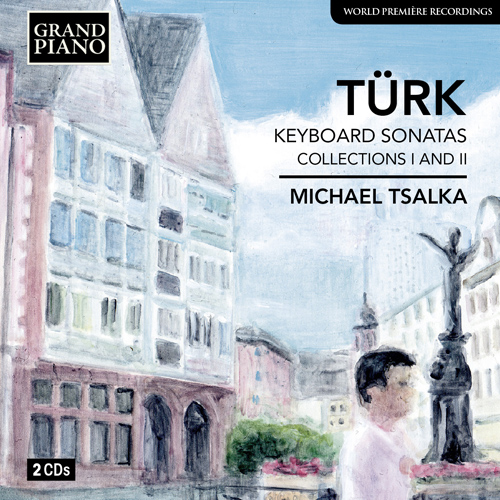

- #The synthesizer has virtually no standard repertoire how to
- #The synthesizer has virtually no standard repertoire movie
- #The synthesizer has virtually no standard repertoire tv
What happened at the University of Texas is that, in 1987 at least, you were required to choose an instrument and then pass an audition to be accepted into the music program. "This scene is never going to work" is always my call to action and gets me excited to figure it out.
#The synthesizer has virtually no standard repertoire how to
It becomes a game of figuring out how to make it work with the music, even when the director or producer has given up. I also think that is a valuable mantra to have as a media composer, because so much of what we do is enhancing or even fixing things that don't completely work on screen. This became a recurring theme in my career: tell me I can't, and I'll find a way. At first it was devastating, but then I took it as my ultimate mission to prove them wrong. I understand that you received rejection letter from University of Texas stating you "should consider another career path then music" - what sweet irony. But after arriving at the university and seeing that they had courses in composition and orchestration and conducting, I was dying to learn. I could just continue exploring music on my own. I didn't really think I needed to go to a music school. Upon graduation, I chose the University of Texas in Austin, not because of music but because it was cool, fun, friends were attending, and all that. They were crude but far more interesting to me than my piano pieces. Now I could start writing bigger-sounding pieces, like I heard in my head. But then I discovered and bought my first synthesizers (a Casiotone and a Mirage DSK) and a multi-track recorder. I played in garage bands and took on other interests but really just focussed on writing music at the piano. By 14, my parents had also found a composer in Dallas, Texas (Simon Sargon), who took me under his wing for private lessons to help me understand and develop my composing interests. My parents found some private teachers who could foster this type of piano playing by ear, while also teaching me music theory, technique and the classics. Sadly, my sight-reading skills lapsed, but I was happy and excited about playing music that I loved. This really developed my ear training and ability to later do takedowns and orchestrate what I heard. I bought the records and, when they couldn't find the sheet music, I would just learn it by ear. But something in me said "keep searching." My piano teachers would get frustrated with me, because instead of Bach or Chopin, I would want to learn the Peanuts Theme, the Hill Street Blues Theme, St. There was no way I would ever learn how to be able to do this for a living. Now remember, in 1977, there was no internet, no way to really research and find answers easily. Suddenly it occurred to me that there must be some composers still living that were hired to do this for a living! Then at age 8, I sat there in a darkened theater with my popcorn, drink and candy and this blast of new orchestral music came through the speakers as the words " STAR WARS" appeared.
#The synthesizer has virtually no standard repertoire tv
I was also an avid TV watcher, consuming hours upon hours of cartoons, which again featured music (in my mind) music by the same old dead guys. I loved this huge orchestral music with amazing themes, but I knew it was all written by old dead guys. I was kind of a music geek early on and would conduct my parents' Bernstein records with a toy magic wand, alone in my room.

Growing up in such a small town, there was very little to do besides ride your bike, build forts in the woods and go see movies. Two clichés answers but completely true: It all started when I touched the family piano when I was 4 and began making my own "music" and then the lightning bolt hit me 4 years later when I sat in a dark theater in Paris, Texas, and heard the opening credits to Star Wars. How did it all start and what initially sparkled your path? The reach of Blake Neely goes far beyond the screen and his captivating spirit and music has reached anywhere from the Queen of England to opening games at the Olympics.

first three Pirates of the Caribbean movies, Life As We Know It, Last Samurai etc) or the fact he authored the best-selling: Piano for Dummies or his wide collaborations with Hans Zimmer, Vangelis, James Newton-Howard, Michael Kamen.
#The synthesizer has virtually no standard repertoire movie
Mentalist, Arrow, Resurrection, EastWick) or countless of movie credits (ex. February 2014.īlake Neely has one of the most versatile backgrounds you will ever find for any composer - whether it be his television scores (ex. Answers by Blake Neely / Questions by Troels Folmann.


 0 kommentar(er)
0 kommentar(er)
